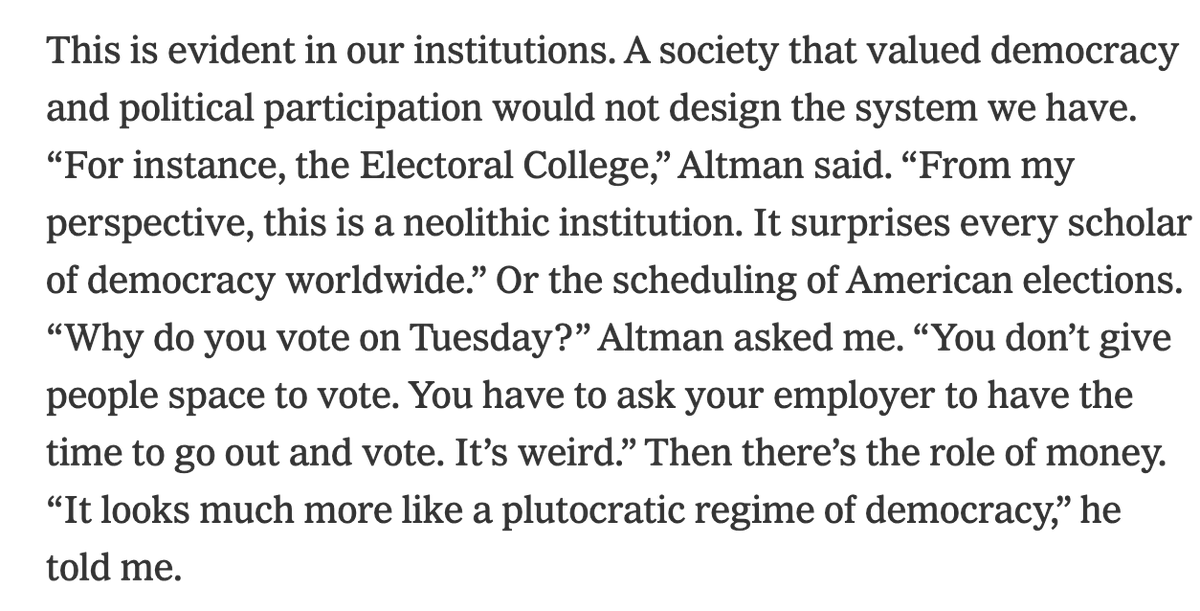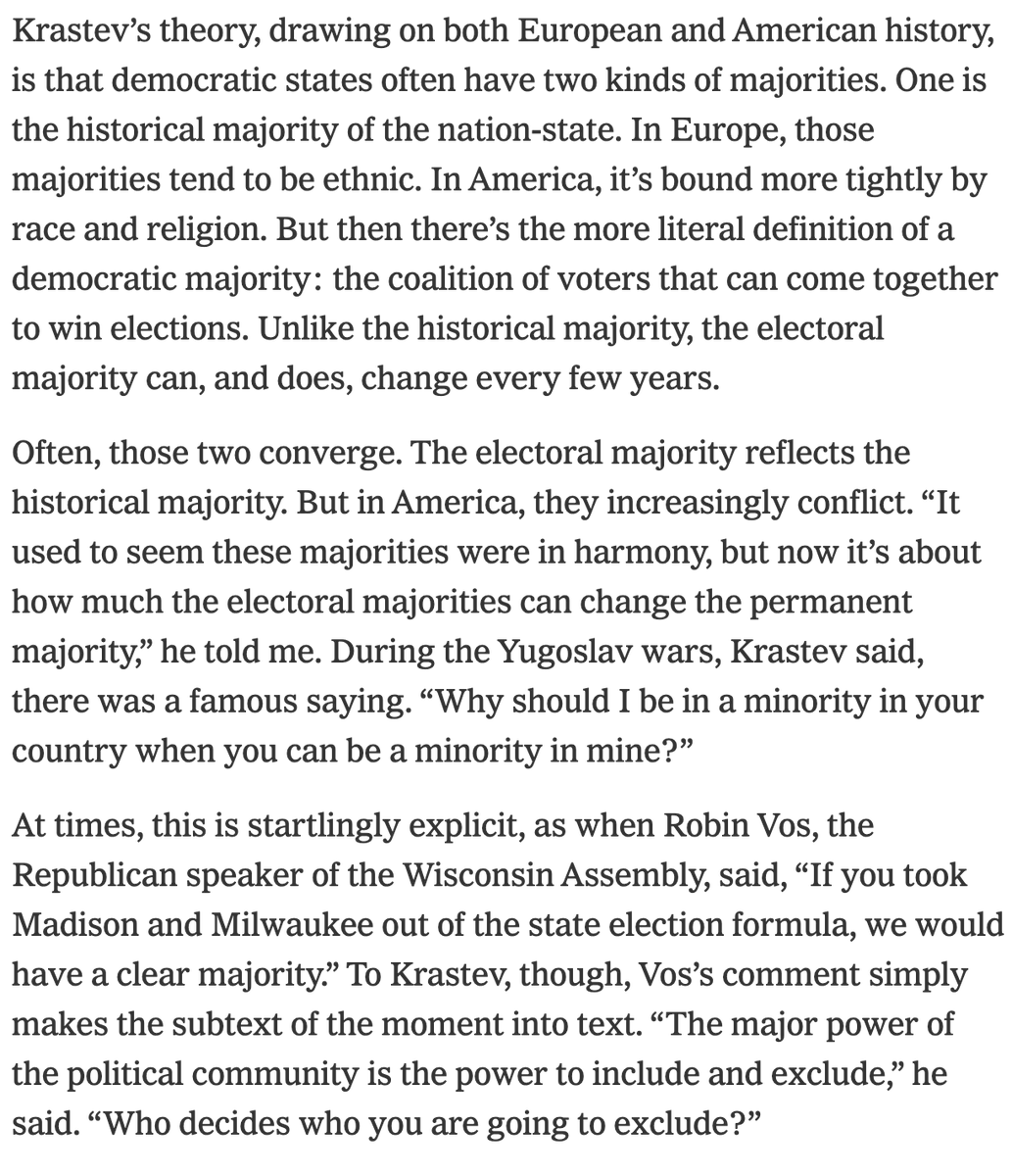
I update my views when policy changes, not before.
Most of of what I emphasize in here, like SB9 and universal pre-k for 4 year olds, passed in the last few months.
In my view, this piece would've been crazy to write in February.
Most of of what I emphasize in here, like SB9 and universal pre-k for 4 year olds, passed in the last few months.
In my view, this piece would've been crazy to write in February.
https://twitter.com/ddayen/status/1433555731911831556
Just one example: The forerunner to SB9, SB1120, had died a few months before, when the Assembly passed it minutes before the clock stopped, and so the Senate couldn't vote on it.
Everyone involved in that fiasco should be ashamed. Valuable lost time. latimes.com/homeless-housi…
Everyone involved in that fiasco should be ashamed. Valuable lost time. latimes.com/homeless-housi…
One reason I focus on housing so much is I'm less impressed by policy where Newsom and the Dems are just spending down a surplus.
That's good to do in just ways, but that money won't always be there. It's governing on easy mode.
That's good to do in just ways, but that money won't always be there. It's governing on easy mode.
Which is why the longest section of this piece is on housing, also the main subject of my Feb piece.
Political pressure is finally driving new policy, even at the cost of angering homeowners and other interests.
You have to be willing to piss people off to make change.
Political pressure is finally driving new policy, even at the cost of angering homeowners and other interests.
You have to be willing to piss people off to make change.

And I think of housing as basically the key to everything else in California. If people can't afford to live here, nothing else we do can really be just. Great climate policy in a housing climate that forces people to move to Texas isn't great climate policy.
But @ddayen is right in that thread that Jerry Brown doesn't deserve all the credit for the tax increases.
Anyway, full piece here! nytimes.com/2021/09/02/opi…
And I'll add the February piece here, which I still think describes a powerful and poisonous dynamic in California's politics. One hope I have is that the recall has focused Democrats' minds on the danger of letting symbolism stand-in for progress. nytimes.com/2021/02/11/opi…
• • •
Missing some Tweet in this thread? You can try to
force a refresh














